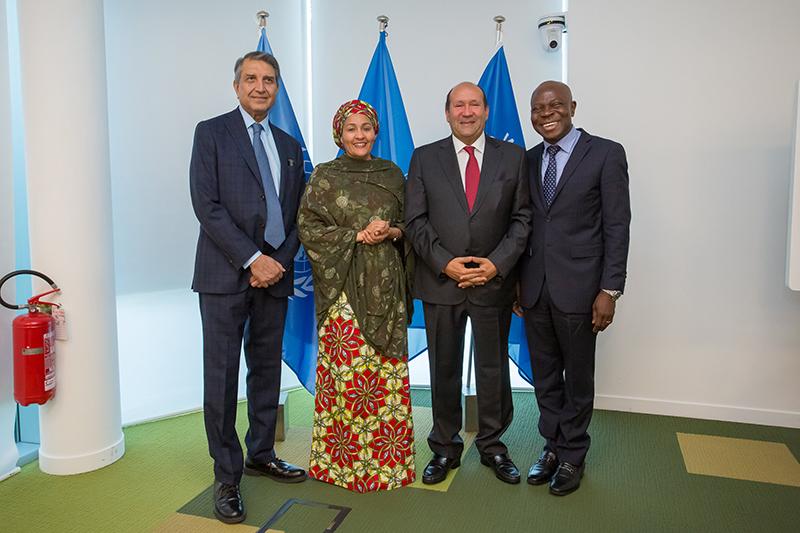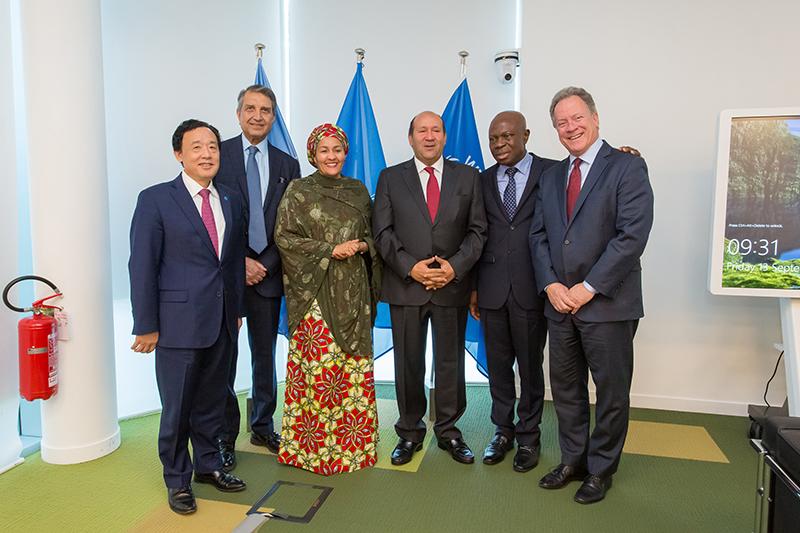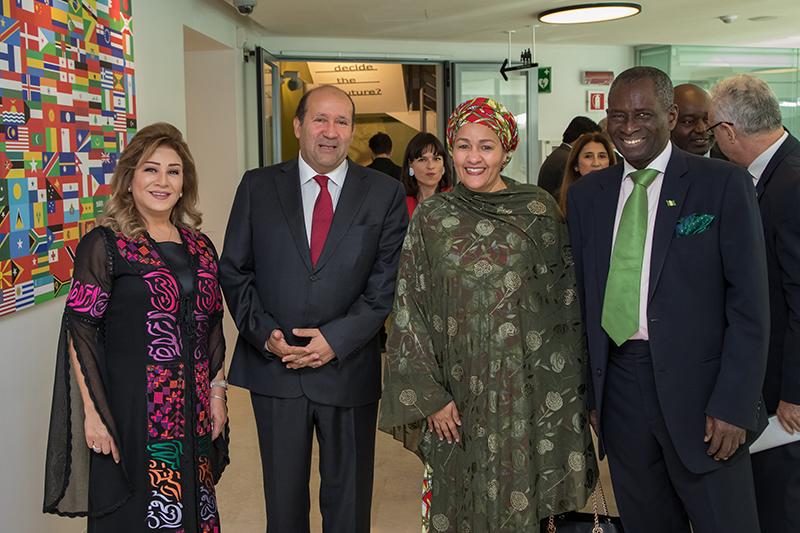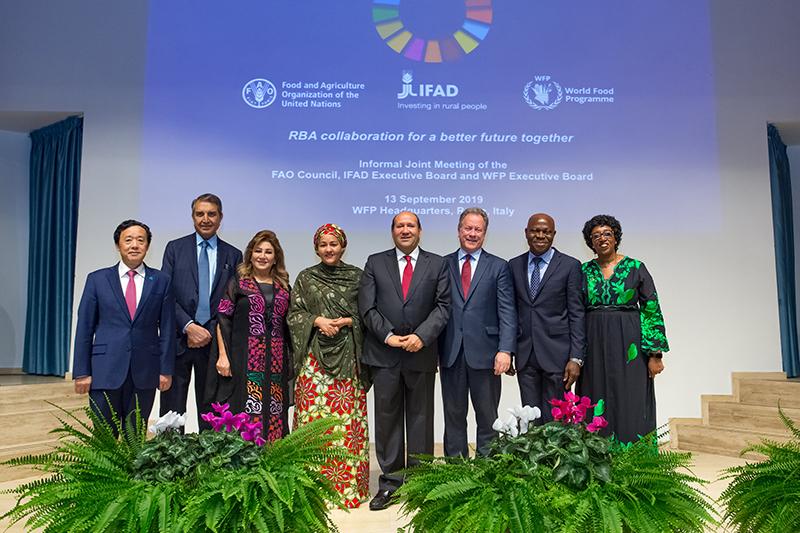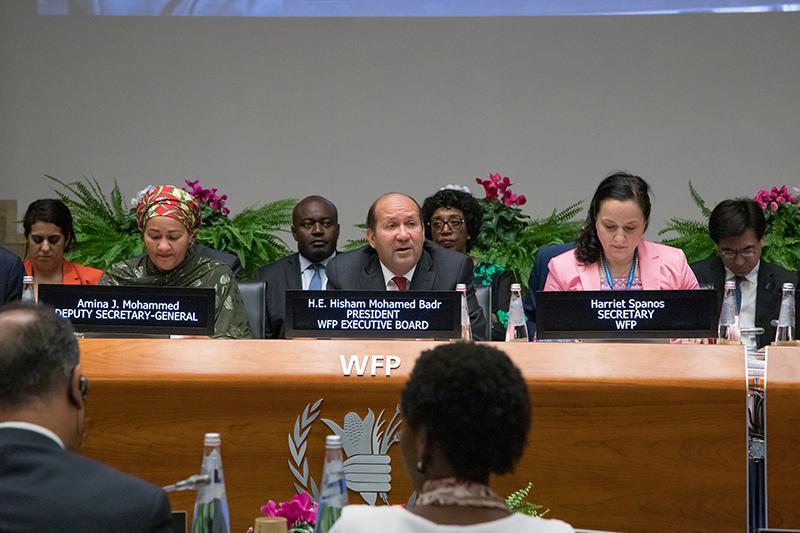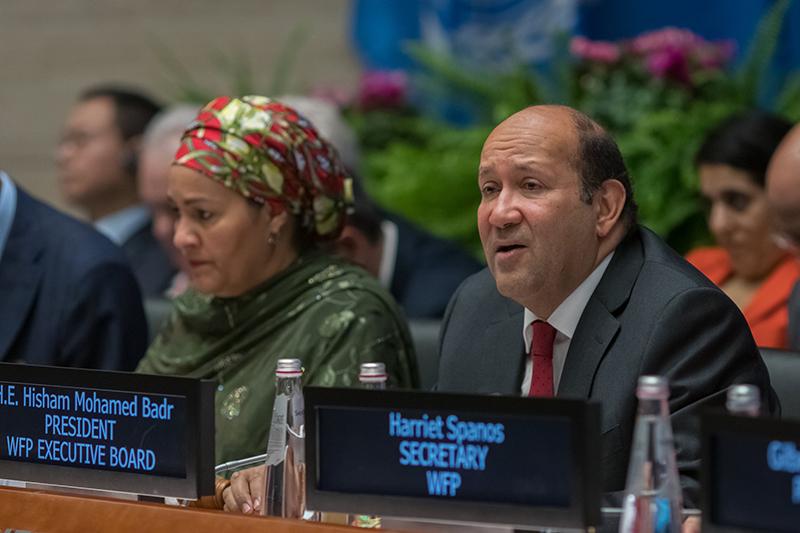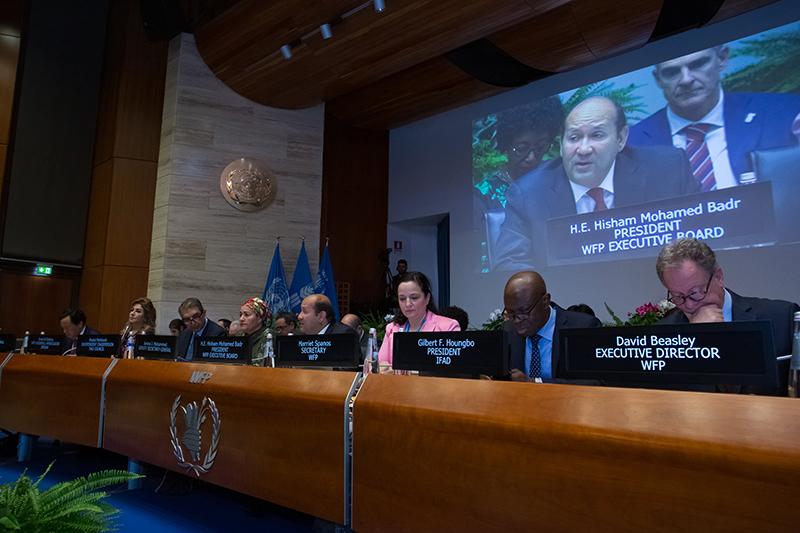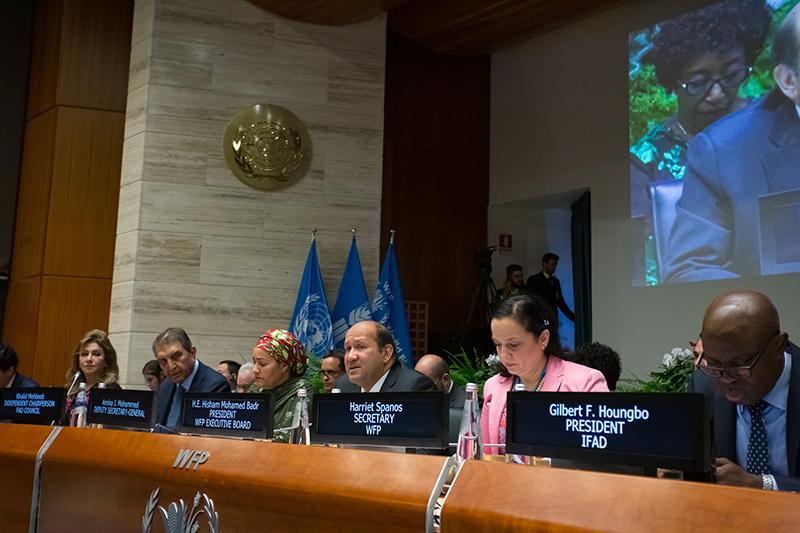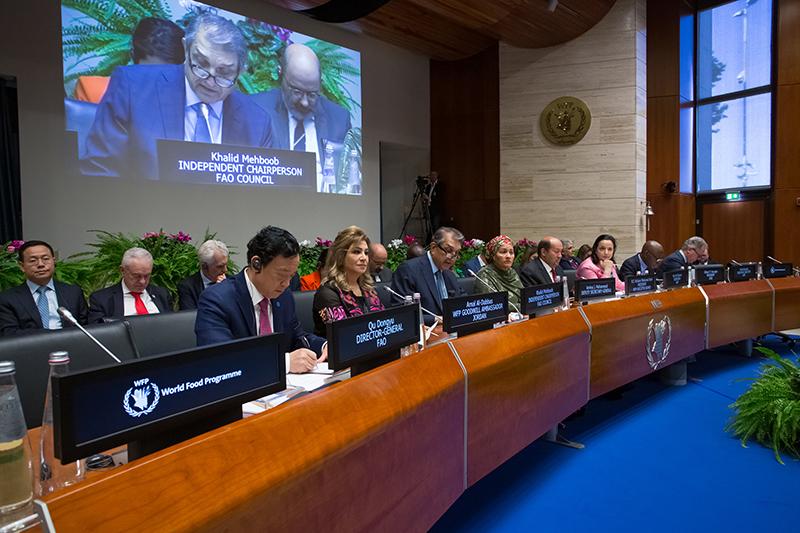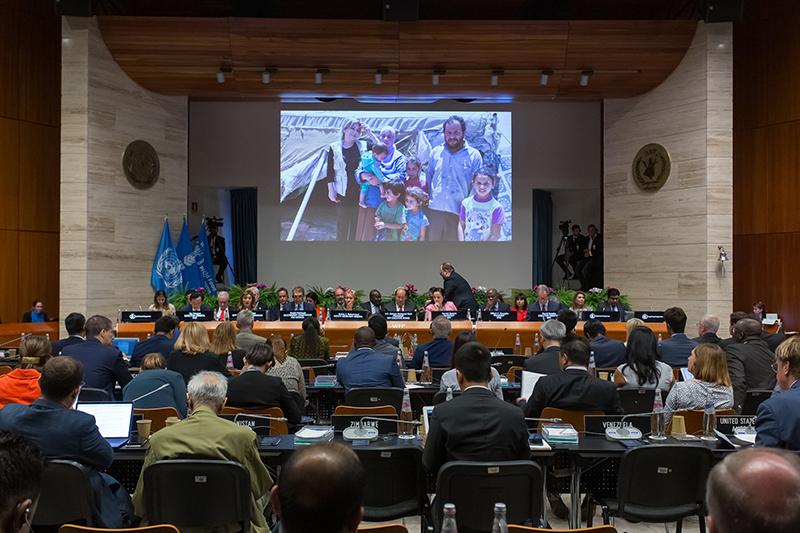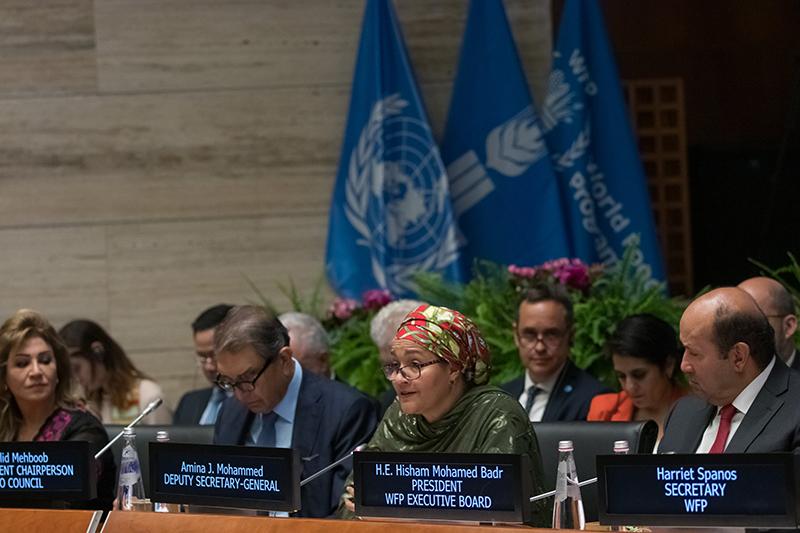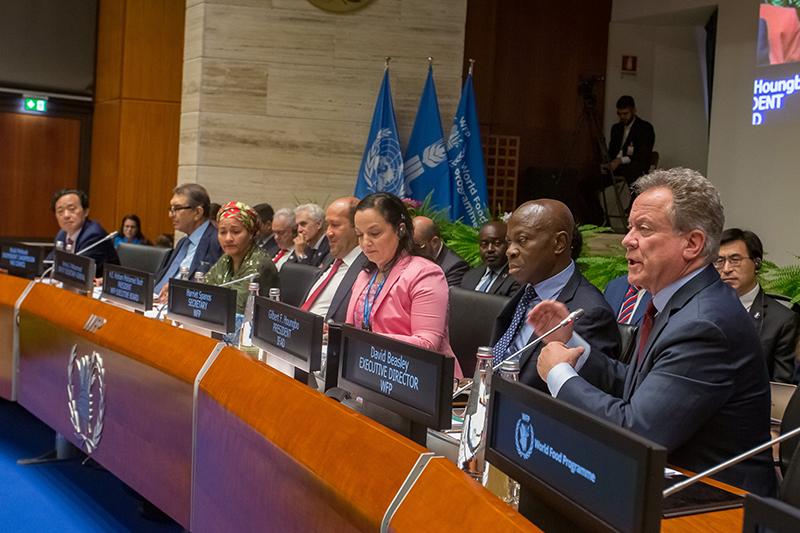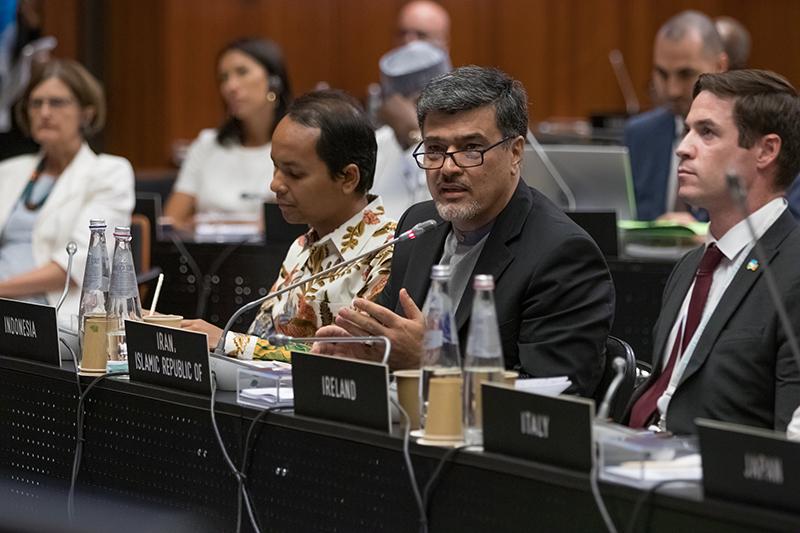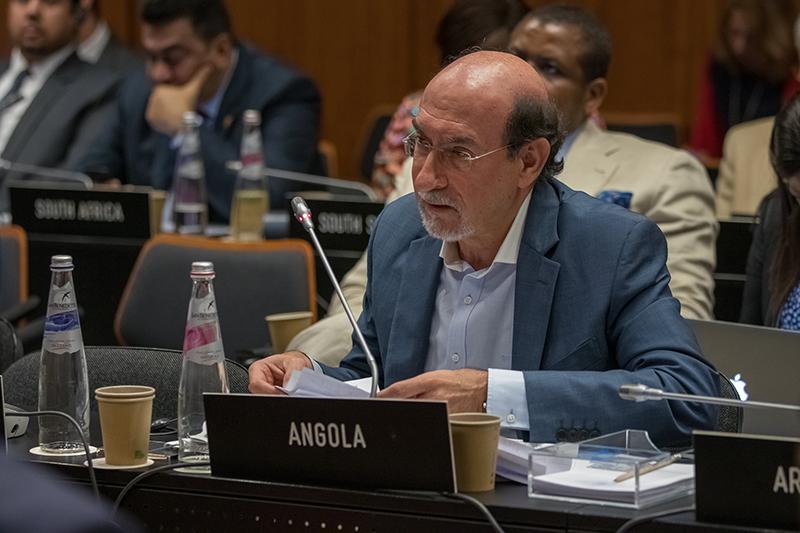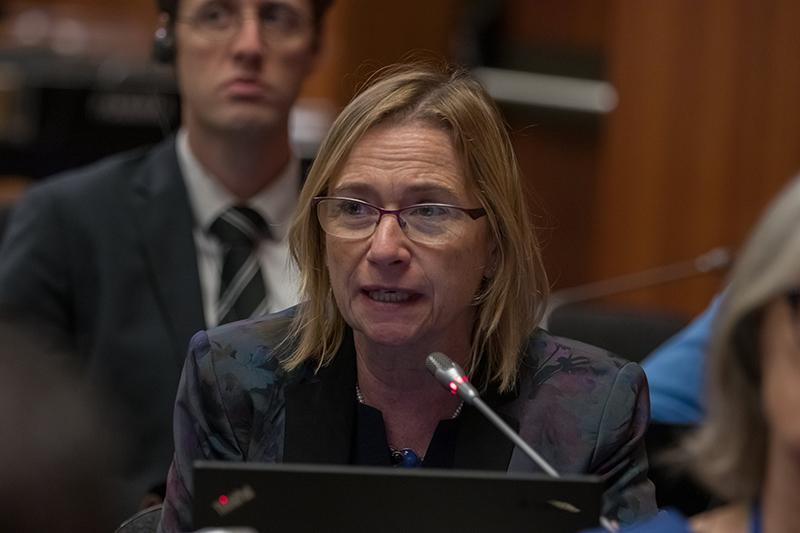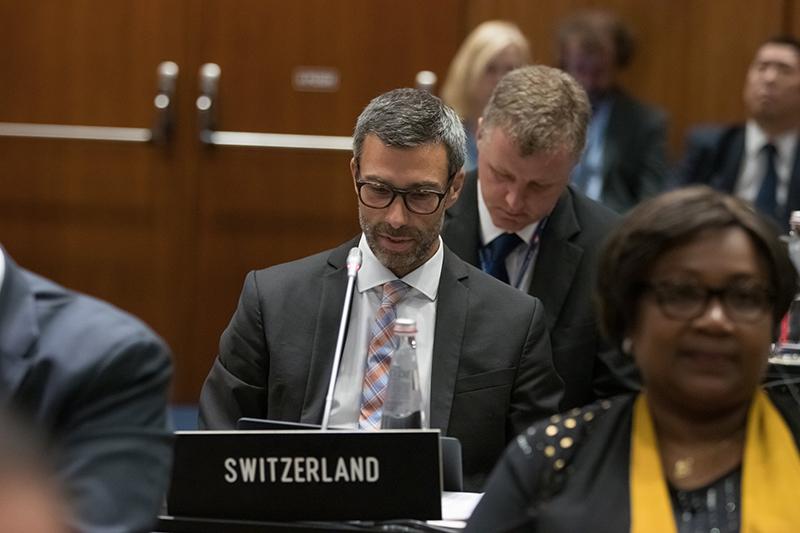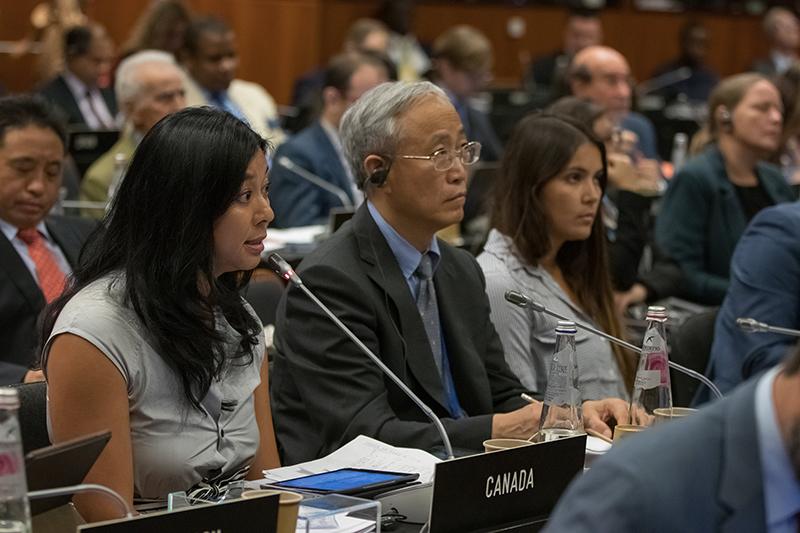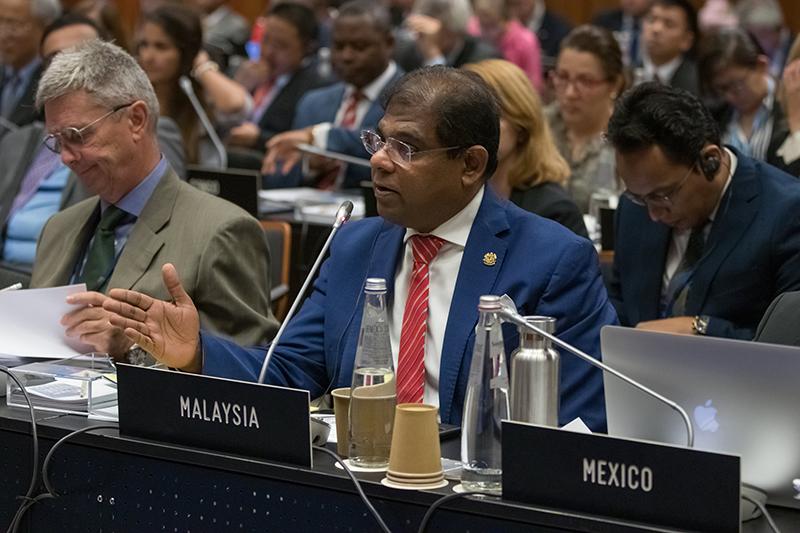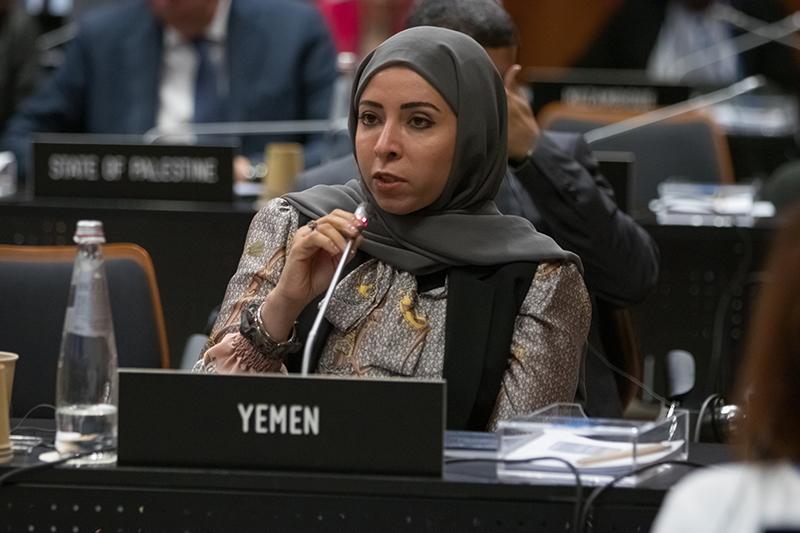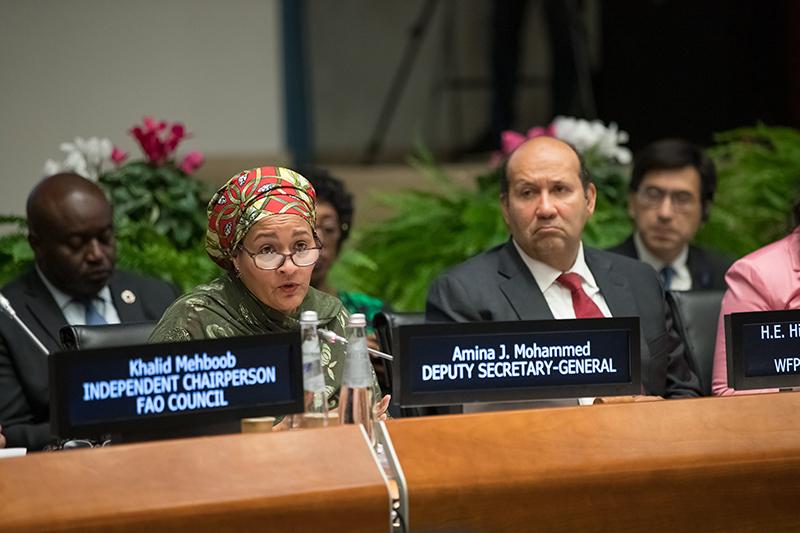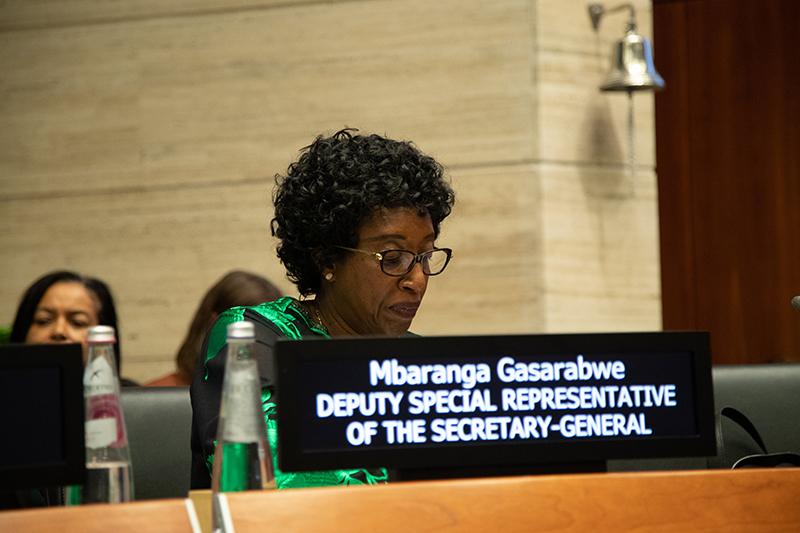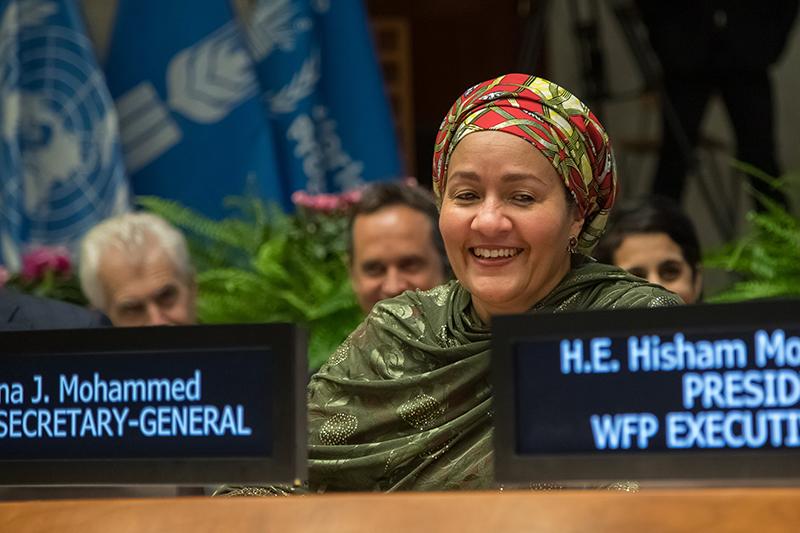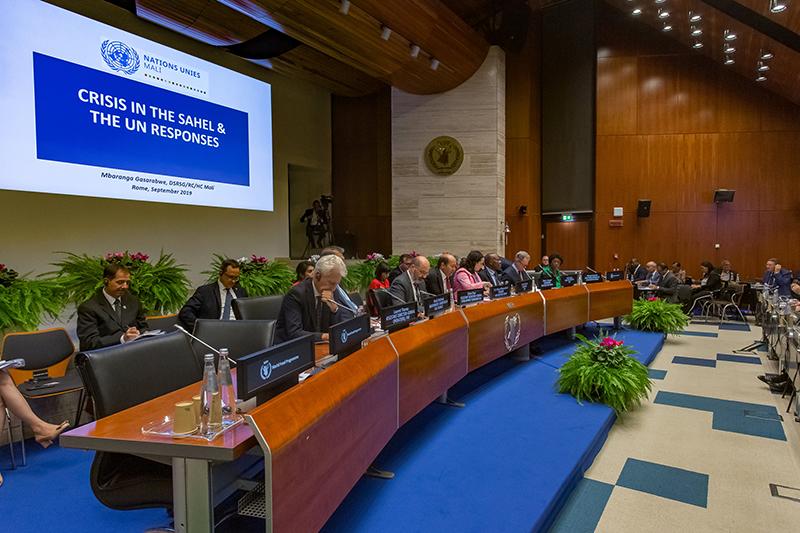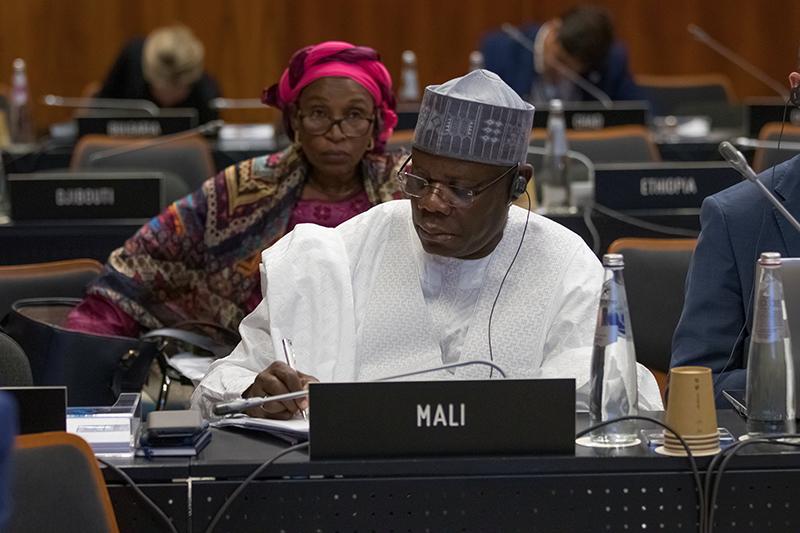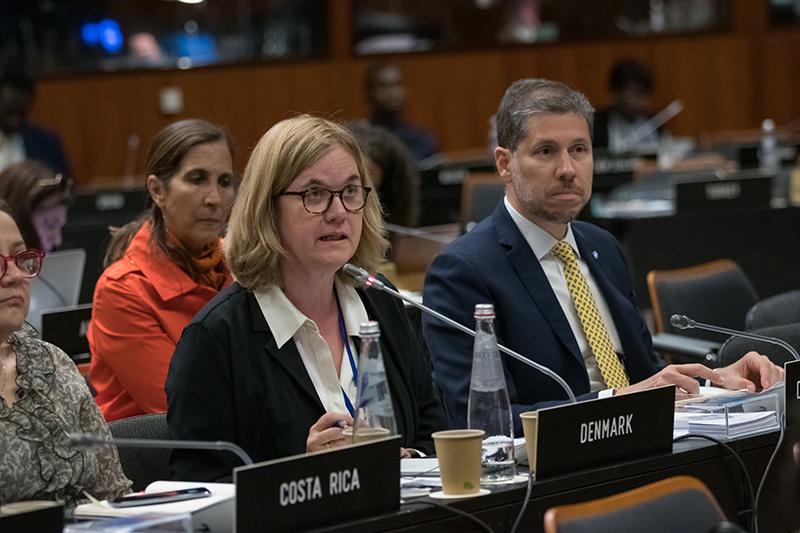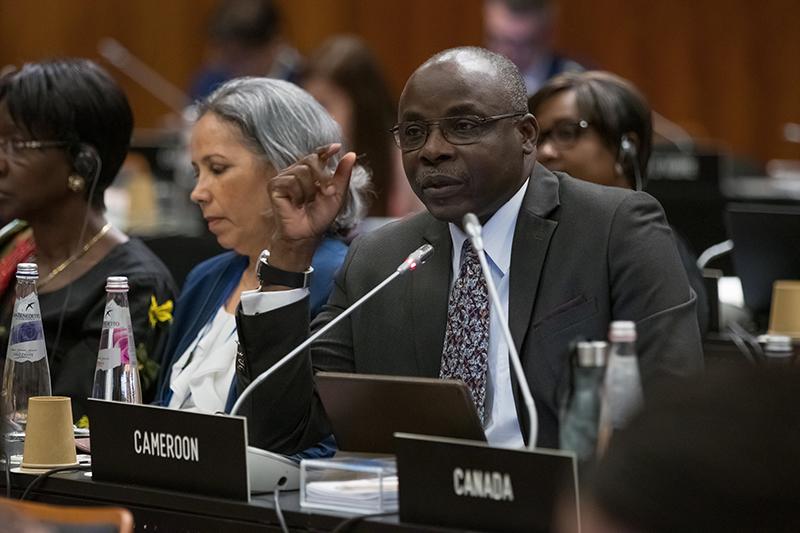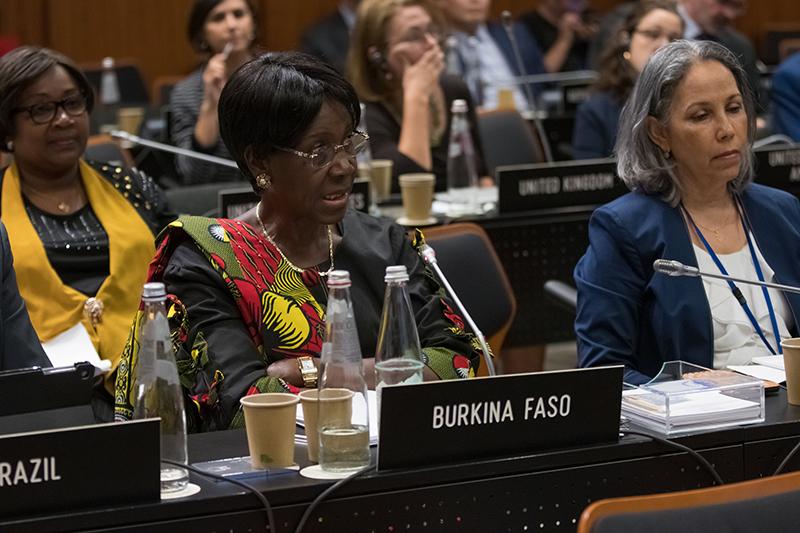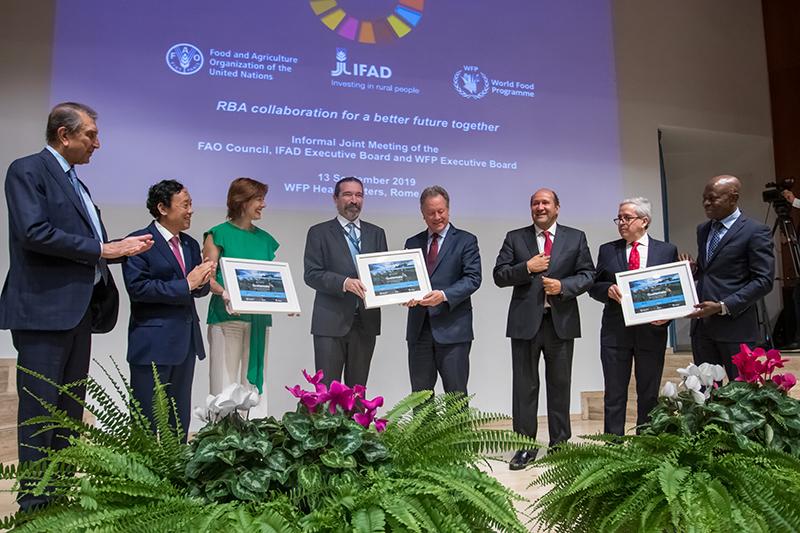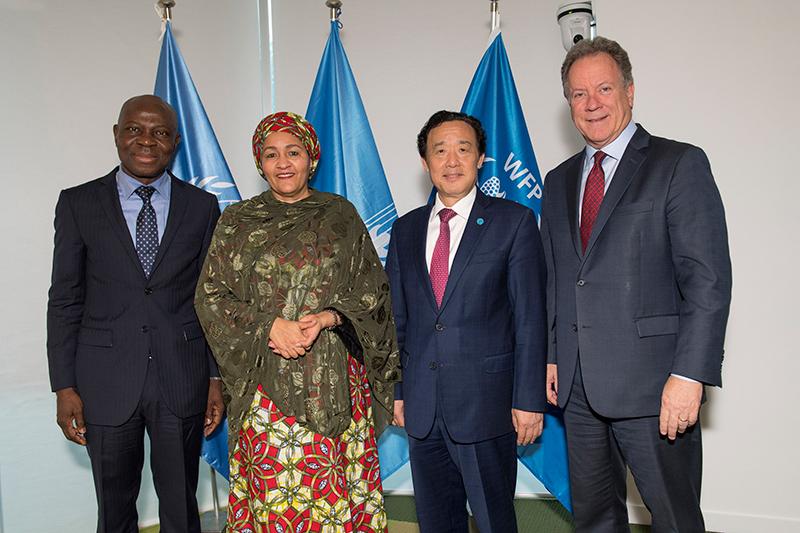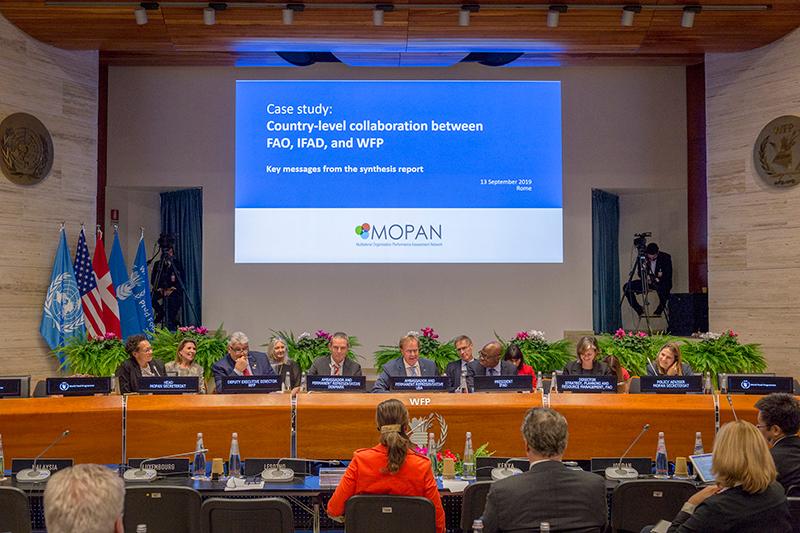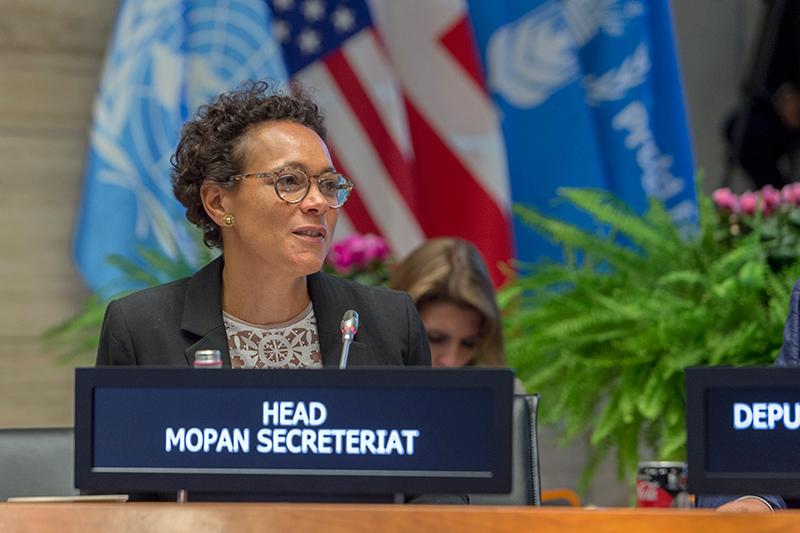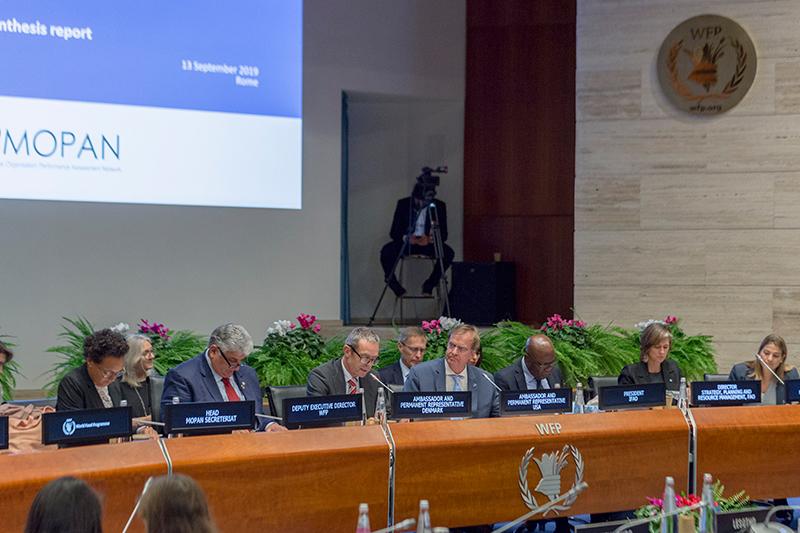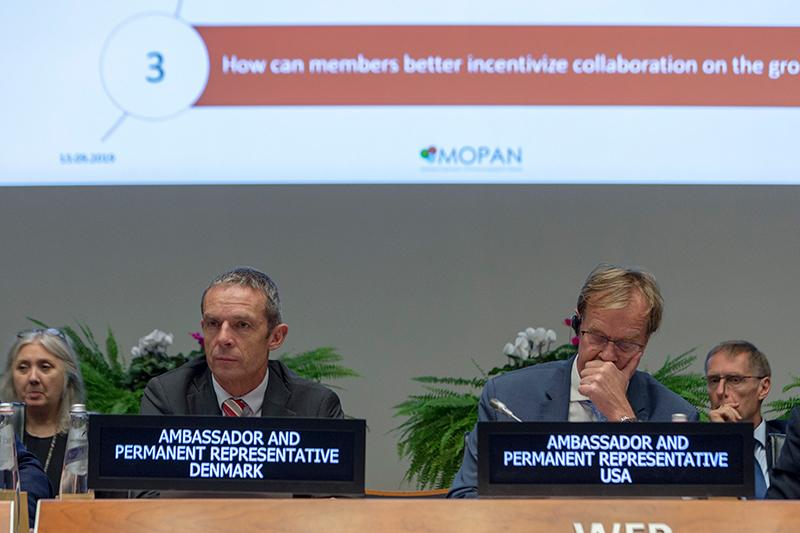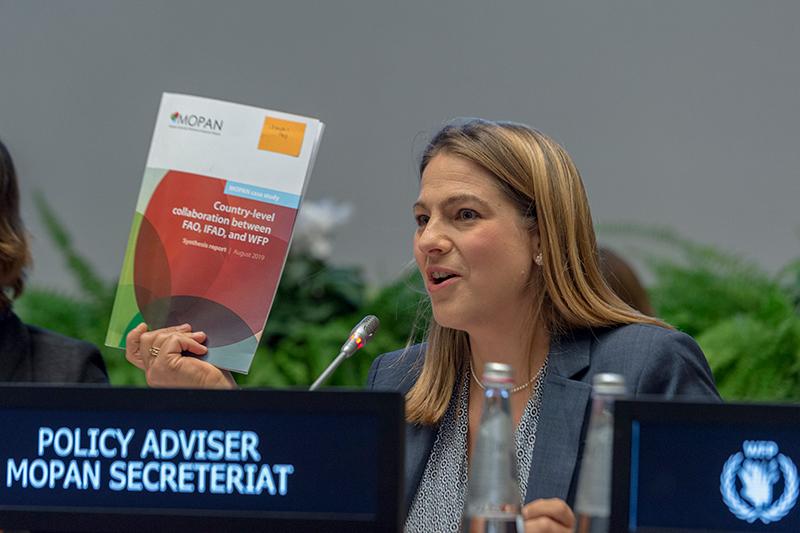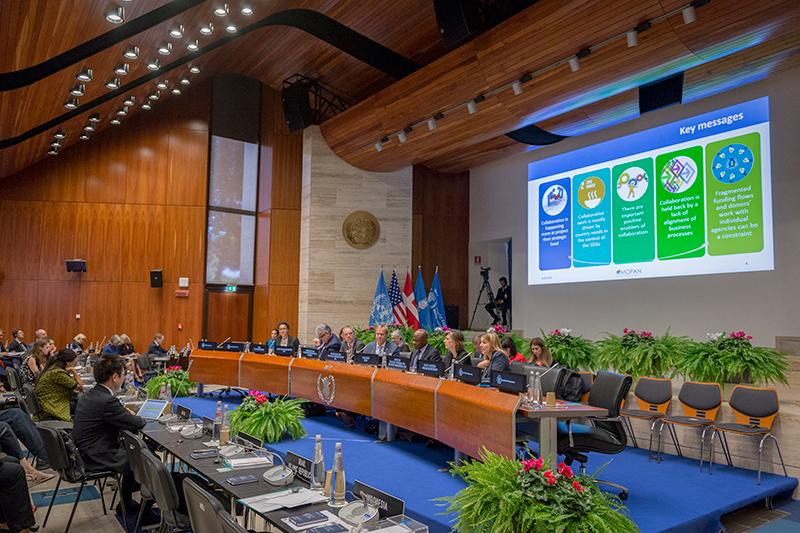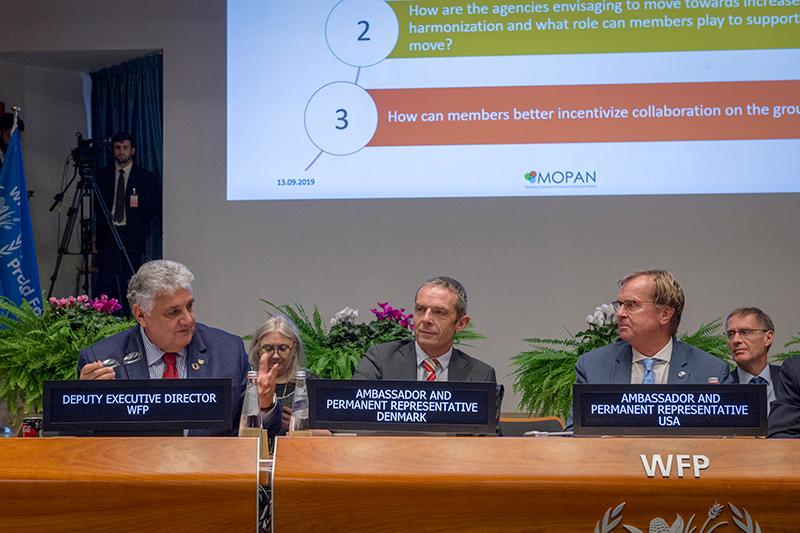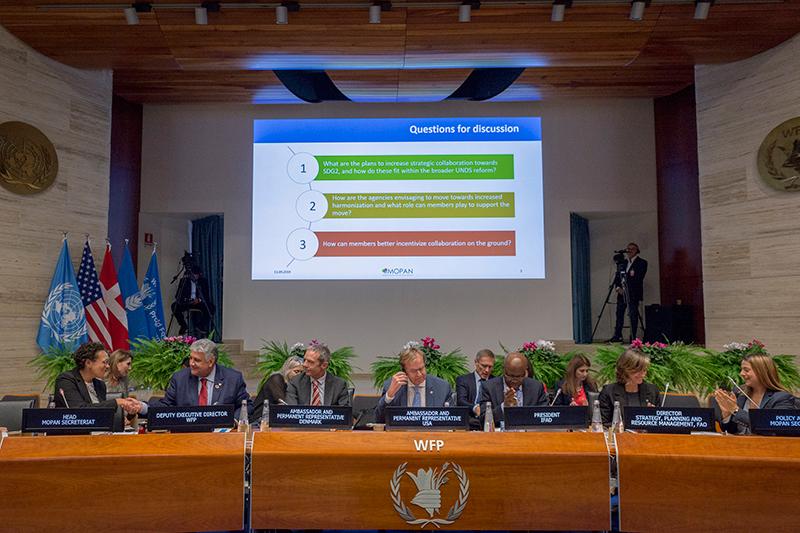On 13 September 2019, WFP hosted the third informal joint meeting of the FAO Council, the IFAD Executive Board and the WFP Executive Board. Member States exchanged insights with the Principals of the three Rome-based agencies (RBAs) on ongoing United Nations reform efforts and collaboration to collectively achieve the objectives of 2030 Agenda and the President of the WFP Executive Board H.E. Hisham Mohamed Moustafa Badr, Ambassador and Permanent Representative of the Arab Republic of Egypt, chaired and opened the meeting. He welcomed all participants, particularly the special guest Ms. Amina J. Mohammed, Deputy Secretary-General (DSG) of the United Nations. The Chair remarked “the importance of elevating food security and the fight against hunger at the top of the United Nations agenda and putting the alarming call for the stakeholders to scale up efforts and promote partnerships between governments, the entire United Nations system, international financial institutions, private sector and civil society”. You can find the full opening remarks here.
The WFP National Goodwill Ambassador against Hunger, Ms. Amal Dabbas shared her first-hand impressions over the activities she supports in Jordan, such as school meals and cash for work programmes as well as food assistance provided to 0.5 million Syrian refugees. She was honoured to be WFP’s Ambassador and “serve the needy and poor people” and recognized the critical role WFP has in changing the lives of Syrians and Jordanians.
Ms. Amal Al-Dabbas’s speech was followed by a short video by Ms. Darine el Khatib, FAO Special Goodwill Ambassador from Lebanon, who reported on her field visits experience in the Near East and North Africa.
Another video showed success stories of the RBAs collaboration in the field.
The first part of the morning segment started with the statement by Ms. Mohammed, who acknowledged that the reform of the United Nations development system is moving ahead with implementation. She provided brilliant examples of how the three RBAs agencies were taking a unified approach to tackling food systems and added that she felt confident that “change is real and it will deeply transform the system and our response in-country to achieve the Sustainable Development Goals”. While celebrating critical achievements, the Deputy Secretary-General recognized that the road towards transformation still remains long and very fragile, but reassured that she and the Secretary-General will remain personally engaged to preserve the ambition and sure action in areas that require further progress. Mr. Qu Dongyu, Director-General of FAO, Mr. Gilbert F. Houngbo, President of IFAD, and Mr. David M. Beasley, WFP Executive Director, reaffirmed RBA commitment and active engagement in the United Nations reform process in a renewed cooperative spirit.
Part II of the morning segment was focused on discussion on the Sahel. Ms. Mohammed shared some reflections on this region and called on the individual and collective responsibility of Member States, United Nations agencies and international community to support the governments of the Sahel as they strive to address the root causes of the crisis on the path towards peace and prosperity. ‘’Reform,’’ she added, “has been instrumental in trying to help us see how better, at the regional level, we come together with country teams to give that support”.
The Deputy Secretary-General stressed how the holistic implementation of the United Nations integrated strategy for the Sahel (UNISS) remains a priority as “it takes a preventive, integrated and concerted approach to strengthening governance, security and resilience”. This strategy, together with the Sahel Support Plan, is aimed at bringing better coordination and coherence in supporting the ten countries in focus. Nevertheless, while progress has been made in pulling together the different United Nations entities, she stressed that we still have to do more to improve coordination and collaboration amongst other actors and strengthen national leadership. Click here to read the DSG’s full remarks on the situation in the Sahel.
The floor was given to Ms. Mbaranga Gasarabwe, Deputy Special Representative of the Secretary-General (SRSG) for the United Nations Multidimensional Integrated Stabilization Mission in Mali (MINUSMA) and Resident and Humanitarian Coordinator in Mali, who reported on the current situation in the Sahel region where inter-community conflicts and a surge in armed violence is causing an unparalleled humanitarian emergency with over 3.6 million persons in need of emergency food assistance. She underlined the importance of “building synergy between different organizations adopting different strategies and initiatives. This would improve efficiency and effectiveness”. She also provided concrete examples of RBA joint action in the region. Click here to see the entire Briefing note on the Sahel.
The afternoon segment of the meeting was focused on the topics of RBA collaboration in management services including potential compatibility and cost savings as well as approaches to private sector partnerships.
As part of the closing of the informal meeting, the Principals of FAO, IFAD and WFP conferred the 2018 Rome-based Agencies Award of Excellence for Best Country-Level Collaboration on the RBA Guatemala country teams.
On the margins of the informal joint meeting, the Governments of Denmark and the United States of America, as champions of the study, sponsored a side event on the launch of the synthesis report of MOPAN case study on RBA country-level collaboration. The MOPAN Secretariat presented the key findings of the study conducted in Bangladesh, Ethiopia, Jordan and Madagascar, and the three agencies provided their views on strategies for further expanding RBA collaboration.
All documents, background information including presentations and biographies of special guests and speakers, material from the side event, photo gallery and videos are available under the respective tabs at the top of the meeting page here.
By Annalisa Vecchio, Executive Board Consultant, Rome

